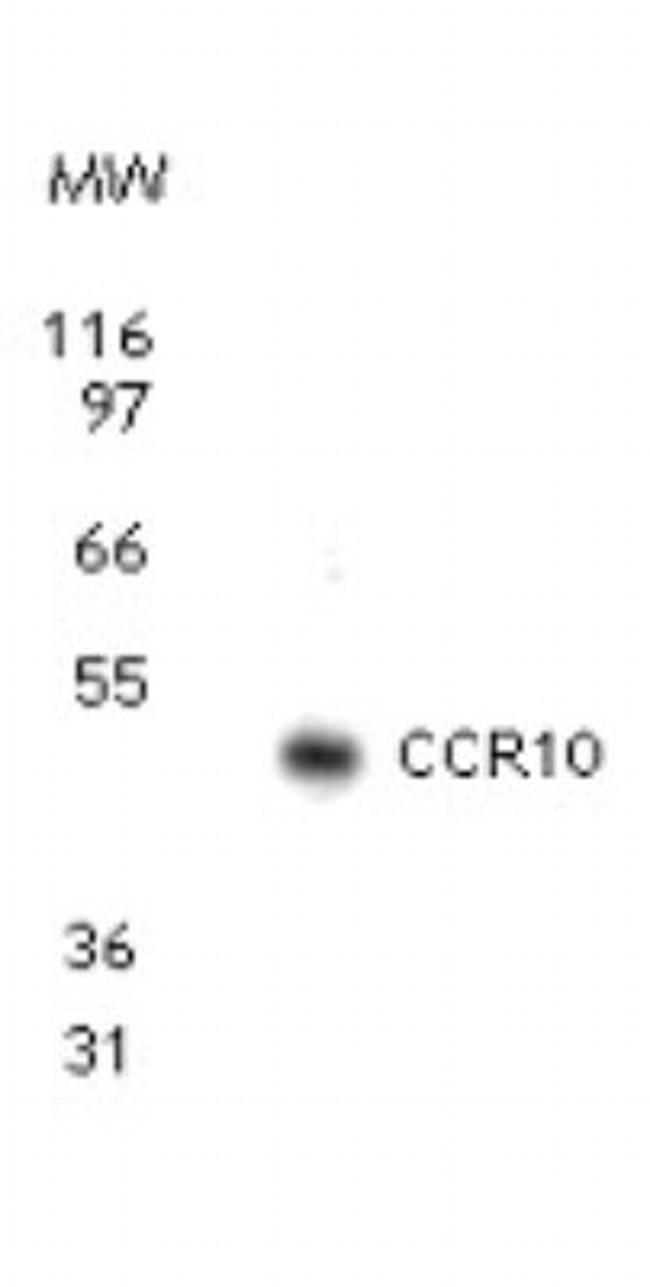Search Thermo Fisher Scientific
Product Details
PA1-41086
Species Reactivity
Host/Isotype
Class
Type
Immunogen
Conjugate
Form
Concentration
Purification
Storage buffer
Contains
Storage conditions
Shipping conditions
RRID
Product Specific Information
The immunogen sequence is 100% identical in human and mouse.
Suggested positive control: A-375 or MCF-7, antigen standard for CCR10 (transient overexpression lysate).
Target Information
Chemokines are a group of small (approximately 8 to 14 kD), mostly basic, structurally related molecules that regulate cell trafficking of various types of leukocytes through interactions with a subset of 7-transmembrane, G protein-coupled receptors. Chemokines also play fundamental roles in the development, homeostasis, and function of the immune system, and they have effects on cells of the central nervous system as well as on endothelial cells involved in angiogenesis or angiostasis. Chemokines are divided into 2 major subfamilies, CXC and CC, based on the arrangement of the first 2 of the 4 conserved cysteine residues; the 2 cysteines are separated by a single amino acid in CXC chemokines and are adjacent in CC chemokines. CCR10 is the receptor for CCL27; CCR10-CCL27 interactions are involved in T cell-mediated skin inflammation.
For Research Use Only. Not for use in diagnostic procedures. Not for resale without express authorization.
References (0)
Bioinformatics
Protein Aliases: C-C chemokine receptor type 10; C-C CKR-10; CC chemokine receptor 10; CC-CKR-10; CCR-10; chemokine (C-C motif) receptor 10; G protein-coupled receptor 2; G-protein coupled receptor 2; MGC151420; RP23-281C18.3
Gene Aliases: CCR10; GPR2
UniProt ID: (Human) P46092
Entrez Gene ID: (Human) 2826

Performance Guarantee
If an Invitrogen™ antibody doesn't perform as described on our website or datasheet,we'll replace the product at no cost to you, or provide you with a credit for a future purchase.*
Learn more
We're here to help
Get expert recommendations for common problems or connect directly with an on staff expert for technical assistance related to applications, equipment and general product use.
Contact tech support


